
Tech Diva Biz Talks
Ready to mix business with brains, tech, and just the right amount of side-eye? Then welcome to Tech Diva Biz Talks (formerly the Business Chop), the podcast where strategy slays, tech behaves (mostly), and your host, Audrey “Tech Diva” Wiggins, says what everyone else is thinking about marketing and entrepreneurship.
We’re spilling the tea on business blunders, brand glow-ups, digital do-overs, and how to stop ghosting your website. Interviews? Sometimes. Sass? Always. Tech working better for your business? That’s the goal.
Subscribe now to catch every episode and exclusive content.
Want to be a guest on Tech Diva Biz Talks? Send Audrey Wiggins a message on PodMatch, here: https://www.podmatch.com/hostdetailpreview/audreywiggins
#LetsTalkTech #Entrepreneurship #PublishedAndPaid #Authorpreneur #Storytelling #EntrepreneurLife #MarketingMoves #SuccessBlueprint #StartupHacks #KeepItLegal #ScaleYourBusiness #TechForBiz #SmartMoney #BrandingBoss #Innovation #HustleSmart #Mindset #DigitalMarketing #ExitStrategies #SuccessionPlanning #VisualStorytelling #TeamWork
The Tech Diva Biz Talks podcast is a production of Altogether Marketing LLC founded by Audrey Wiggins, Chief Brand Strategist aka Tech Diva. Visit https://altogether.biz for more information.
Tech Diva Biz Talks
Personalized Portfolio Intelligence for Everyday Investors with Alexander Harmsen
In the ever-evolving landscape of finance and technology, artificial intelligence is reshaping how we manage our money. This episode of Tech Diva Biz Talks welcomes Alexander Harmsen, a techpreneur and AI enthusiast who's making waves with his innovative approach to personal finance.
From Astronaut Dreams to AI-Driven Finance
- How his early pursuit of space exploration led him to entrepreneurship
- The lightbulb moment that sparked the creation of Portfolio Pilot
- Why traditional financial advice may be falling short in today's fast-paced world
Revolutionizing Personal Finance with AI
- The power of personalized, AI-driven financial advice
- How automation and algorithms are making expert-level financial strategies accessible to everyone
- The surprising ways AI can help you save on taxes and optimize your investments
"We have a very simple goal: helping you end up with a little bit more money in retirement and feeling a little bit more in control of your finances."
Navigating Common Investment Pitfalls
- Alexander reveals the most frequent mistakes he sees investors make and how AI can help avoid them:
- The hidden costs of leaving cash uninvested
- Why timing the market often backfires
- The importance of diversification beyond just stocks and bonds
The Future of AI in Finance and Beyond
- Get a glimpse into what's next for AI:
- How personalized expertise is being democratized across industries
- The potential for AI to revolutionize everything from fitness to healthcare
- Why the next few years could see exponential growth in AI-driven solutions
Are you
Buzzsprout - Let's get your podcast launched!Start for FREE
Digital Marketing Platform
Content Creator Machine - The integrated all-in-one online marketing, business tool/platform.
Altogether Domains, Hosting and More
Bringing your business online - domain names, web design, branded email, security, hosting and more.
Small Business Legal Services
Your Small Business Legal Plan can help with any business legal matter.
Mens and Womens Hats
Since 1972, American Hat Makers has been dedicated to the art of fine hat making.
Designrr for eBooks, Blogs
Create eBooks, Blogs, Lead Magnets and more!
Riverside.fm Your Own Virtual Studio
Professional Virtual Studio
Digital Business Cards
Let's speed up your follow up. Get a digital business card.
Disclaimer: This post contains affiliate links. If you make a purchase, I may receive a commission at no extra cost to you.
Want to be a guest on Tech Diva Biz Talks? Send Audrey Wiggins a message on PodMatch, here: podmatch.com/hostdetailpreview/audreywiggins
To work with Audrey schedule a breakthrough/discovery session.
[00:00:00 - 00:01:24]
Welcome to Tech Diva Biz Talks, where we tune in, dive deep, and level up. I'm your host, Audrey Wiggins, AKA the tech Diva brand strategist, marketing mind, and your guide through the ups and downs of entrepreneurship. Let's talk tech. Hello, Tech Diva Nation. How are you doing today? I'm excited as usual. We have our guest. His name is Alexander Harmsen. He's a techpreneur, a tech entrepreneur. He's passionate about AI. Love that subject. Finance. Okay, we can can that, but. And autonomy. But we're going to learn some stuff there. Okay. All right. More than one plus one equals two. He founded PortfolioPilot.com, an AI financial advisor with over 30 billion in assets on platform. So previously he founded and sold Iris Automation, which worked. He worked on NASA's Mars helicopter. That's awesome, Alex. He went through Y Combinator. He's raised over $30 million in venture capital and was recognized by Forbes 30 under 30. So we'd have to put those two together, like 60 over 60, you know, for me. So we're gonna. We're gonna start that new trend there for have you heard it first here on Tech Diva Biz Talks. Alex, welcome to Tech Diva Biz Talks.
[00:01:25 - 00:01:28]
Hey, thank you so much for having me. Really happy to be here.
[00:01:28 - 00:01:38]
Awesome. All right, so let's get into some questions here. I know I always like to ask my guests their fun fact, so if you have one you want to share with us.
[00:01:38 - 00:03:39]
Yeah. You know, very early on, I was set on being an astronaut. And obviously there's sort of the Halloween costume, sort of grade school. But, you know, I remember very explicitly, like, making a list and researching and trying to get in contact with former astronauts. And, you know, I got my scuba diving license, because that's a requirement. I got my pilot license. That's a requirement. I got my STEM degree. I participated in a whole bunch of military stuff. And then I feel like when I was like, actually had the application form in front of me, I just bailed, just decided, like, this is not for me, obviously, really cool. And I definitely will get into space one day, but more, you know, more likely on the private side and space tourism. I think I finally realized that if I was to be an astronaut, then it basically meant that every, you know, every hour of my life would be controlled by somebody else and controlled by the governments and arguably working on some of the coolest stuff you can think of. But I just couldn't stand the idea that the next 30 years of my life would be planned out for me with this heavy investment from the government and all this training and emissions and whatnot. And it sent me on this completely different path down entrepreneurship, which feels the exact opposite direction of just everything is in my control and you know, whether I work the next hour or not you know, directly has an impact on how good the business becomes. And so it kind of feels like I get to chart my own path. And you know, I got a lot of cool stuff out of it. I've.
[00:03:41 - 00:03:44]
Yeah, you got those two licenses. Are you kidding? That was awesome.
[00:03:45 - 00:04:24]
Scuba diving in the Bahamas. You know, like every time I think about scuba diving now I'm like picturing going along the bottom and having this absolutely massive, probably 6 foot diameter turtle, you know, just coming up right beside me. And I've done a fair amount of like private flying and in college, you know, this was an excellent way to make friends. It just, you know, take some friends up flying in the mountains and you know, split costs and so yeah, all in all, you know, not too bad. But I feel like that could have been looking back, that could have been a completely different path for me.
[00:04:24 - 00:04:34]
Yeah. And you're, you know, and your personality probably wouldn't be coming through like it is right now, a little more tense and like, okay, I've got to get to that next thing, you know.
[00:04:35 - 00:04:38]
Yeah, it's, it's already. What is it?
[00:04:38 - 00:05:32]
0400 Sponsored by Altogether Domains. Bringing your business online, whether you are launching a new venture or leveling up your brand. AltogetherDomains.com helps you secure your digital real estate the smart way. Visit altogetherdomains.com
First up then or second up but you want to how we want to count it. So portfoliopilot.com making waves. Okay, so you're still making some, some waves out there, right? You know, some comptroller. Excuse me. Okay, so it's making waves in the investment world. Not my most experience. You know Mike, I'm about tech but which we will get into but we're going to learn some stuff today too from you. Okay, so what was your light bulb moment for creating it and how was it rewriting the rules for how everyday people manage their money?
[00:05:33 - 00:13:05]
Yeah, a lot of stuff packed into that question and you know, I love it. I think that like the common narrative and it feels easy to think like just at, at some point the idea came and you know, the next day, you know, it was a billion dollar company. We IPO IPO'd on Wall Street. I think in reality, you know, my background is engineering, physics, and economics. And so, you know, that's what I studied in school. Basically a lot of modeling and mathematics and, you know, taking our very complex world that we live in and trying to break it down to something easy to understand, something, you know, something we can do something with and make decisions based on. Like you said, I worked at NASA and a bunch of other companies and startups and then started my previous company in autonomous vehicles, right? Nothing. And nothing to do with finance or investing. And I've had my, you know, little crypto portfolio and made some good decisions and make some bad decisions. And I have a Robin Hood account and my 401k and an IRA, and I'm married and I have kids and five, two, nine. And, you know, so I, I built and sold that company over the course of seven years. And then afterwards, basically, you know, sold the company, transitioned out, and suddenly had nothing to do. Sort of like was the height of COVID You know, we had a baby, we bought a house. You know, I'm trying to. Trying to fill my life and trying to see, you know, it's like, add something else, trying to figure out what the next venture is. My wife also runs a startup. I mean, startup is such a loose term, right? I mean, they're seven years in, they've raised $25 million and they're working with the FDA and the Mayo Clinic and like, they're working on clinical trials with pharma companies and, wow, killing it. She's actually the smart one in our relationship. Your PhD, cancer research. And so I was trying to figure out what to do. And I'm having calls with investors and other friends, you know, other. Other founders and startup folks and tech experts. And, you know, in 20, 21, 22 and 22, I'm like, walking around social distancing, you know, with a baby strapped to my chest. And I. I must have started 50 different companies sort of back of the back of a napkin, you know, documents, talking to people, prototyping, some stuff I hadn't really coded in like, five years. And so it was fun to, you know, take my coding gloves out and, you know, get into it a little bit again. And then at the same time, we're talking to financial advisors and planners and wealth managers and private bankers. You know, it's the first time in my life that we had any sort of money, right? Liquid money. And so I just couldn't stand the idea of paying someone else, you know, 1% of my net worth every single year to manage my money. And a fairly cooker cookie cutter portfolio. We sold it and it was a good outcome, but it wasn't, you know, I'm a billionaire rich outcome, right? And so I'm not building my own family office and hire lawyers just to deal with my financial situation. And so, you know, some of these wealth managers, you know, they have 100 different clients at the same time, they charge 1% and they all put you into the same portfolio that they manage for you. And they're great salespeople and they make you feel like, you know, they are quote unquote experts. But you know, the real finance experts are working on Wall street, right? They're not doing financial advisory services. I thought maybe I'm getting introduced to the wrong people. I, you know, kept, I probably spoke to 20 different financial advisors trying to find the right one. And the first, like in every first conversation, second conversation, they were able to point out sort of optimization opportunities in my current financial situation. But beyond that, it felt like there wasn't really anything personalized that they could give me and I couldn't stomach the fees. And so I decided to just build something for myself because there's, there's a thousand and one trading tools out there for active investors and you know, Bloomberg Terminal Lights for the day trader and trading signals and what's up forums and Wall street bets. And I didn't really want to get into that world. You know, that's not me. And you know, there's robo advisors like Betterment and Schwab and Fidelity. And it also sort of felt like lowest common denominator advice. And I are, you know, in 2021, 2022, are we in a bubble? What's happening with inflation? The Fed is printing a ton of money. Are we like, is the bubble going to pop and are we going to collapse? How do I think about my house? How do I think about college saving, long term retirement planning, estate planning, insurance? I mean there's so many things to think about. And so I sort of put it all into the software that I was building and that the idea was mostly just I'm going to use this for myself. And you know, at the end of every month I would run it and it would crunch through millions of combinations and changes and optimization opportunities. It would take about six hours, you know, really inefficient. And then it would give, give me a list of, you know, 20 recommendations. But like Alex, you should do these things. And you know, the first couple versions, you know, out of the 20 things, maybe four of them were useful. But even that, you know, me filtering out that list thinking like, okay, there's four useful things that I can actually do to feel to optimize my financial situation. Cut down off fees, save a little bit of taxes, build in a little bit more downside protection without losing returns. That helped me feel more in control. It felt. Helped me feel like I'm actually doing something more. I worked on this, you know, hobby project. The more I talked to other people about it, the more it felt like I'm actually on to something real here. You know, financial advice hasn't really changed in the last thousand years. You know, there is the quote unquote expert that you go to. You, you give him your money. You know, they tell you, okay, we're on track. You know, you're in good hands, and then you show up in retirement, you withdraw some money, and, you know, you hope that the fees that you pay outweigh the, you know, the. You get outweighed by the positive impact of having a, you know, quote unquote expert involved in your finances. Yeah, but there's so many tools now that could actually help you do that. And I can get really, really personalized and so we can bring the actual expert opinions and expertise down to your specific situation. And like you said, it's taken off like crazy. We actually needed to become a registered investment advisor with the SEC and take on a fiduciary responsibility. And I needed to write a bunch of exams, and I'm Now a Series 65 licensed investment advisor representative. So I can babysit the model. You know, things like that. It's.
[00:13:05 - 00:13:47]
You know what? Just. Let's just go back to when you, before you. When you went to college and, you know, decided you wanted to be an astronaut. This is you. It's the process of deciding you, you know, so it's not a waste of time that you did that. You know, aside from the fact that we talked about, for, about getting the, the two licensings, you know, certifications out of it. So when you, you brought all of that, that experience, that process and systematic experience into developing your companies, and now you're. This tool is still, you know, your business, but, you know, portfolio, pilot.com. i think that's, I think that's awesome. So give us the. I don't know if you want to finish anything else in that point, but if you do.
[00:13:47 - 00:14:23]
But after that, no, I'm completely with you. Right. Honestly, a lot of it's just been fun and like, I'm constantly learning things. I'm just like an extremely curious person. And so I think every couple months I like start getting bored with something and that feels like the right moment to automate it or get some AI involved or pass it on to someone else on the team or hire someone new so I can move on to something more interesting that's actually going to move the business forward. And it's been like that for, I don't know, 15, 20 years now. Just keeps getting more fun.
[00:14:23 - 00:14:37]
Wow. Okay, so give us the VIP tour though. Okay. How does Portfolio.com's AI actually work behind the scenes? And what makes it smarter and maybe easier than the traditional financial advisor?
[00:14:37 - 00:19:25]
There's a few different things. Right. One thing is that we're simply just way cheaper than a financial advisor. Most financial advisors are charging around 1%, something like that. And if you have a million dollars in your portfolio, retirement accounts, everything, we're talking about $10,000 a year. Our annual plan is $240 a year, $20 a month, less than a cup of coffee, blah, blah, blah. And so we specifically tried to make it inexpensive. And the main thing is that there's not a human in the loop. And so we can make it relatively inexpensive to everything else out there. And we have incredible margins that investors, our venture capital investors love it for that as well. Right. It's incrementally very cheap to just onboard a new person. We don't need to hire another, hire and train another human financial advisor. And so for most people, they come to portfoliopilot.com, they create a free account, they answer a bunch of onboarding questions, simple stuff like what are my financial goals? What do I actually care about at the moment? Long term, short term, risk profile, tax situation, net worth, things like that. And then we ask you to import one account. Could be take a screenshot of your account, could be linked directly through Plaid, could be upload a statement manually type it in, and then we'll give you a portfolio assessment. And so we'll say, Audrey, you are on track for retirement. And all the different scenarios that we run, you have an 86% chance of hitting all your retirement goals. Here's your current portfolio score. Here's what, what you're doing really good. Here's some optimization opportunities, right? Here's some stuff that you're sort of falling behind on. What we could give you some lift. And then here's how you compare to your peers, people your same age, people your same risk profile, and people of like the same net worth. At the core, Portfolio Pilot is just a free portfolio tracker. You, you can add everything. Cash accounts, you know, retirement accounts, brokerage accounts, real estate, student debt, private debt, angel investments, gold bars under your bed. You know what, whatever makes up your net worth, add it in. We give you that assessment. You can run that assessment as many times as you want. There's this retirement planning tool that's at the core of the product. And so adding in, you know, we run a thousand different scenarios and different market conditions from where you are right now through retirement and then beyond. We model out distributions and basically show you in the best case scenario, in the worst case scenario. Most people want to prepare for the worst case scenario, right? You want to get, you know, as close to 99% of all these scenarios. I'm, I'm going to be fine. Add in life expectancy, add in different events, college, marriage, divorce, you know, whatever you want to model out to get a little bit more confidence. And then if you actually want to pay for the product, $20 a month, it unlocks this fiduciary financial advice. And so we'll give you very specific suggestions. You know, Audrey, based on your long term plans, based on what we understand about your goals, based on what's currently in your investment portfolio, in your other accounts. You know, we think you're leaving money on the table. You should buy XYZ ETFs, you should sell this position. This is how much you're going to pay in taxes. You know, the markets just dipped and say, here's these tax loss harvesting opportunities for you. You're paying way too much in fees in this mutual fund. You know, we think it's time for you to roll over this 401k to an IRA. You know, you're going to save this amount in management fees. We know you have two kids and so you should think about guardianship for your kids. You know, you haven't updated that in two years. You're paying too much in life insurance. I mean, there's so many things that you can improve about your financial situation. And so the idea that Portfolio Pilot will proactively monitor that and call out these suggestions for you and then still at the end of the day, you decide, yes, that's a good idea, yes, that's a good idea. No, ignore that. Don't touch my emergency fund. I want to keep it just as it is. That helps the system learn and give better recommendations next month. And it also means that like, you are more in control, you know, zooming way out. We have a very simple goal. Simply just helping you end up with a little bit more money in retirement and feeling a little bit more in control of your finances. And, you know, there's a thousand different ways that we can do that and help you.
[00:19:25 - 00:19:30]
Okay, so totally out of my element then. Let's talk investor oops moments.
[00:19:30 - 00:19:31]
Yeah.
[00:19:31 - 00:19:39]
What are, what are the top blunders that you see us make with our portfolios and how can AI step in and save the day?
[00:19:39 - 00:22:50]
I think it's always, to me how often the same kind of mistakes come up. And I think most people know that, right? I think there's every. Almost everyone that I talk to has some sort of fear and greed that they're trying to control. The fear that, like, I'm missing out on something, right? Am I. Is there something I'm doing wrong? Is there something I'm not doing right? Am I leaving money on the table? And then there's the greed, right. My friend just, you know, he. He is invested way more in bitcoin than I did, you know, four years ago, and look at him now. Or, you know, maybe I should push the risk a little bit more and maybe I should invest in Tesla after all, or whatever it is, right? And so part of it is just psychology and just sort of helping people have a North Star, having a second opinion, you know, involved in their finances. Very common things that people, I think, miss out on. The number one most common thing is not, you know, missing the next Tesla or missing the next Nvidia. I think most people focus on that because it's kind of exciting to be a stock picker. And, you know, for most people, even the ones that, you know, bet on Nvidia in the early days, you know, it's less than 5% of their portfolio and, you know, in the grand scheme of things isn't really, really going to make the difference. A very common mistake that people make is simply just leaving cash in a checking account uninvested. I'm. However much it is, money moves around. You get a paycheck, you transfer from one account to another. Sometimes there's rollovers and your 401k plan sends you an email and you ignore it. Because I get so many of those emails and they've decided to draw up one of their funds and they're going to leave the money in cash. You think it's compounding year over year, but then when you finally check it, you realize, like, it hasn't been making any money, it's actually been losing value because of inflation. You know, for the Last five years. And so the idea of just putting it into a money market fund or some like, you know, some treasury that like makes a couple percent is oftentimes more than what you can get in a savings or a checking account because those values are relatively low at this point. I don't know why, but, you know, bank of America or, you know, Wells Fargo just, you know, rarely has, you know, much in their savings accounts. Even though it feels like, you know, intuitively, if I'm putting money in savings account, I'm going to get, you know, the highest possible savings rate. That's oftentimes not the case. People don't really think about tax optimization. It's so boring, right? And like, doing taxes even once a year together with TurboTax, like, is brutal. I have to collect all my statements at different accounts and I have to coordinate.
[00:22:50 - 00:22:53]
Always file the extension, give my cpa. Can you just put that.
[00:22:53 - 00:25:32]
Yeah, just push it off another six months, another eight months. And so, you know, what happens very often is that there are tax optimization opportunities that appear throughout the year. That if you do it once at the end of the year, those optimization opportunities are just gone. We ran a study. Portfolio Pilot users saved $11 million in taxes in 2024. These are not small numbers. Right? This a really big deal. We've considered just putting that on the front of our website and saying, like, look, we'll help you optimize your taxes. It converts low. You know, people don't respond well to that. We're leading with AI stuff and finance, but it's possible that just the tax stuff will pay for itself. You know, if you use Portfolio Pilot. And then, you know, maybe the other thing is that a lot of people think about their portfolio is simply just bonds and stocks and I have stocks for returns. You know, that's where I'm going to get my growth. And I have bonds almost like a break, you know, my car to slow things down and help with downside protection. In reality, it's just, it just doesn't work like that, you know, especially in high inflation environments, you know, like we saw over the last couple of years, the bonds lose value, the equities lose value. Historically, what do you do? How do you build a more diversified portfolio? How do you think about real estate and commodities and all these other things also just like, immediately feel super complex. A big part of what we're trying to do with Portfolio Pilot is just make that more guided. You know, it's possible that the most important feature in the entire product is simply just an email that we send once a month at the start of every month, and we say, you know, Audrey, based on what we see in markets, based on what we have in our database, based on your preferences, your current positions, here's three things that you should do for the month of September. One, two, three. Should take you less than 10 minutes to execute. Increase your portfolio score, get you a little bit closer to your retirement plan, and that's it. If you want to do more, go ahead, you know, dive into the product and click on everything. If that's the minimum you want to do, that's fine. We're here to just nudge you along and help you be a little bit more in control. If we can get people sort of into that pattern once a month, I look at my finances, I make a few adjustments and tweaks. If we do that for millions of people, we will have saved a tremendous amount for Americans. And realistically, we're taking a lot of money out of the pockets of human financial advisors, But I think at the end of the day, they're probably unnecessary middlemen, you know, in this world of AI.
[00:25:33 - 00:25:46]
Yeah, yeah, definitely. And, you know, the goal is in business, of course, to make money, but also to serve. And it seems like Portfolio Pilot. Pilot is here to serve. So I'm going to ask you.
[00:25:46 - 00:25:46]
Exactly.
[00:25:47 - 00:26:02]
Yeah. Another question then, too, because, you know, because you. Obviously, you're scaling in, and this is. Scaling AI companies isn't for the faint of heart. So what's been your toughest challenge in growth mode? And how did you outsmart it, basically, or.
[00:26:02 - 00:26:16]
The last two years? I've just been trying to get on this Tech Diva podcast. I assume that once the podcast goes live and, you know, millions of people will flock to us and, you know, all of our marketing problems will have been solved.
[00:26:17 - 00:26:27]
It was a compliment, but, you know, but he didn't. He, y'. All, he didn't take two years for him to get it. You know, a waiting list. Oh, my gosh.
[00:26:28 - 00:27:24]
I love it. I mean, I think it's. It's a lot of different things, right? I mean, I think that if you want to do something different, you know, if we want to create a new category around AI financial advisors or personal financial intelligence, then you need to market in a different way and you need to use different tools. And I like to think that the product is, you know, interesting enough and useful enough that, you know, people tell their friends about it. But, you know, there's sort of a slow diffusion, right. So you want to. You want to juice that in some way. And I never really like the idea of just, you know, raising millions of dollars to throw it into ads and just pay it to Google and Facebook and Reddit. And so there's a little bit of ads there. But you know, a big focus for us is actually a E O, you know, Answer engine optimization.
[00:27:25 - 00:27:25]
Oh, that's.
[00:27:26 - 00:29:17]
And so basically half of our users at this point come from ChatGPT, Perplexity, Claude Grok. And my like, my pet theory is that, you know, I like to think that, you know, we've done a lot right in terms of SEO and FAQs and showing up properly in the world and earned media. But my pet theory is that, you know, these AIs are specifically not allowed to give financial advice, but lots of people ask them for financial advice. And so like a fairly common response is simply just like, I would like to help you, I can't get financial advice. But there are, you know, if you want to use AI front financial advice, use portfolio pilots. Sign up here, this is the features they offer. And so if we can get that to be the standard response for these AIs, that changes the game. You know, the fact that we're, we're a registered investment advisor with the SEC and we have a fiduciary responsibility and you know, we have to meet this like very stringent SEC marketing rules as well, I think also means that, you know, the chance that we're generating quote unquote, AI slop, putting it on the Internet is much lower. And so maybe these AIs can trust us a little bit more because, because of all the compliance stuff, you know, on these SEC rules, you know, they can, they can count on that material having gone through some sort of compliance review. Yeah, and so there's, there's a bunch that's working in our favor. There's. And ChatGPT and Sam Altman just last week announced that they have something like 700 million weekly active users at this point. It's crazy, absolutely crazy. 10% of the human population, we can get 0.1% of those queries coming up with something like, hey, you know, I can't answer it for you, but Portfolio Pilot can answer it for you. That changed the game.
[00:29:17 - 00:29:29]
Absolutely. Oh, wow. So looking into your crystal ball then, what's next for AI overall and where will we see the most jaw dropping impact in the next five to ten years? Your opinion?
[00:29:29 - 00:30:57]
Super intelligence and you know, curing cancer and robotics and things like that. And don't get me wrong, really excited for that. And like it's so. It's so uncertain what those timelines are. Right. I think the biggest benefit AI for most people will be the fact that you get an expert in your pocket and the idea that you can. You know, traditionally expertise was very expensive, sort of locked in these walled garden has now just been democratized. And so the idea that you can get personalized expertise, whether it's legal expertise or financial expertise or medical expertise or I'm setting up a fitness regimen for myself. And the chance that I go on a blog and find a fitness regimen that is perfect for me is very low. But to, you know, working with, you know, an AI fitness coach to specialize my diet for the things that I actually like and don't like and what I'm willing to do and not willing to do. Right. There's some things that appear on the blog that I'm just not willing to do. Right. Just like I have limits to my personal what I'm willing to do. Personal fitness, give me the lowest hanging fruit from my body type and the things that I want to eat and I don't want to compromise on X. And so the idea that you could bring that expertise to everybody and apply it to their individual situation, that changes humankind. Like, I think we're just scratching the surface of that.
[00:30:58 - 00:31:56]
Did you know 99% of people check their email every day, up to 20 times a day. It's the first thing people do online, even before looking at social media or other news. But viewers retain only 10% of what they read. Adding video to your email, their retention skyrockets to 95%. Sent video plus email equals success. It's time. The future of email is here. Goodbye, email. Hello, video email. Ready to ride the wave. Visit altogether.popfusion.com all right, some little funny question here. If portfoliopilot.com were a person at a cocktail party, how would you describe their personality and what would they be sipping?
[00:31:56 - 00:33:33]
Oh, interesting. Very intentionally, we don't want to come across as the pretentious know it all that's telling you how to live your life. Right. We also don't want to be the, you know, the frat bro, like just, you know, bet it all on black, you know, crypto, everything. Like, I think about us as sort of like the, the fun, knowledgeable older brother that has been doing this for a couple years more than I have, is not necessarily saying, like, look, I'm the expert, just trust me. Like, it is too complex for you. Audrey just put it here. But is thinking like, okay, like you know, this guy is knowledgeable. He's willing to sit with me and sort of, like, explain things to me. I can have this sort of personal relationship with him. I think, like, that's very much the. The personality that we're going for. What are they drinking? There's, like, there's classes of drinks here. It's like, you can get pretty deep on this question, right? There's, like, there's classes of drinks. I feel like, in terms of this or like, the frat bro to pretentious scale, I think they're probably drinking wine. And I mean, I think something maybe a rum and Coke, you know, something that they can sip on, enjoy. But it's not, like, so in your face that they need to brag about, you know, specifically the region in Italy where this comes from. And, you know, this one tour they did once upon a time, you know, something like that.
[00:33:33 - 00:33:45]
Oh, my gosh, that's funny. All right, so, Alex, this has been fun. We're not quite over yet. What's your website and how can we get in touch with you and so we can kind of go deeper on this journey?
[00:33:45 - 00:34:16]
Yeah, very simple. PortfolioPilot.com and, you know, it. Like I said, there's a free account. There's a bunch of questions to answer to try to understand and personalize the product for you. You know, we like to think that 20 bucks is, like, absolutely worth it. Yeah, I'm super biased. Yeah. I don't want it to be, like, super promotional, but there's even a free trial there. And then I think my marketing guy would kill me if I didn't mention that, you know, we have a promo code, simply just podcast for a free month of gold. If you go check it out.
[00:34:17 - 00:34:17]
Awesome.
[00:34:17 - 00:35:24]
And then I'm pretty active on Twitter. My handle is Alex Harm, or the company handles portfolio pilots posting. Lots of interesting stuff there. I like to get as involved with our users as possible. So you can book an onboarding call, too. I'm probably doing three or four onboarding calls every single day. Even though we have something like 30,000 users at this point, it's so much fun to meet people across the country. It helps me figure out exactly what's going on with the product, what's working, what's not working. We do a new release of the product, you know, a new update to the product every single Monday evening. It's happening very quickly. You know, if you report some issue on Tuesday, the chance that it makes it into the Monday release next week is pretty high. And so, you know, we think that there's, like, something about that feedback loop and the age of AI and quick prototyping, rapid iteration, that makes all the difference too. Right. It's like, it's one of the reasons why I'm even, you know, remotely confident that we can compete with a billion. Billion dollar company like Fidelity. Right. And there are 10,000, you know, human financial advisors.
[00:35:24 - 00:35:28]
Yes, yes. Because at one point, they were in your seat. Okay.
[00:35:28 - 00:35:29]
Exactly.
[00:35:29 - 00:35:38]
Yeah. Just a matter of time. Okay, speaking of seat, I'm gonna put you in the hot seat. Alexander Harmson. All right, Rapid Fire, let's do.
[00:35:38 - 00:35:39]
I'm ready.
[00:35:39 - 00:35:45]
All right. First investment ever. Ever made in. Was he genius or Facepalm?
[00:35:45 - 00:36:20]
First investment ever made. I don't know exactly the first one, but the first memorable one was that I. I spent six hours setting up a Mt. Gox account to buy, like, a teeny, tiny amount of crypto and bitcoin and then subsequently lost it all when, like, Mount Gox, like, went down. And there was, like, a whole criminal investigation, not a me, you know, around this exchange, you know, overseas. Maybe I should go back and look at, like, what that would be worth now. But I think it'd be. I think it would be very. Make me very sad.
[00:36:20 - 00:36:25]
Yeah. Okay, so that was a face bomber. All right. Coffee, tea, or code?
[00:36:25 - 00:36:40]
I've been trying to cut out coffee recently, and I think I'm doing a pretty good job. You know, I think I'm down to, like, one latte a week at this point, and I've convinced myself I'm no longer addicted. Okay, I'm gonna leave it there.
[00:36:40 - 00:36:46]
Okay. All right. Sounds good. One word that best describes AI's future in finance.
[00:36:46 - 00:36:47]
Personalization.
[00:36:48 - 00:36:55]
The app you can't live without besides your own. You can't choose portfoliopilot.com slack.
[00:36:56 - 00:37:50]
We have, like, we have a global distributed team, and I feel like I'm constantly just on Slack. And, like, the wonderful thing about this, like, we're spread across a bunch of different time zones throughout the day. There's sort of different. Different parts of the team that activates. And I'm, like, working on marketing in the morning. There's a bunch of product stuff and design in the afternoon and a bunch of engineering stuff in the evening. And almost every single morning, I wake up to 30 different Slack messages. And some of them are really urgent. Like, Alex, you got to get on a call. We got to sort this thing out. But most of them are, like, we released this new feature, we fixed this, and here's this Marketing win and. And so it just kind of feels like it's on all the time and some like it's just alive. And I feel like that, you know, around the clock, someone is working on building better financial advice for millions.
[00:37:50 - 00:37:59]
Awesome. Okay, if you weren't running an AI company, what would you be doing right now? Right now, Alex Harmson, probably running a.
[00:37:59 - 00:38:07]
Different kind of company. Probably running a robotics company. Maybe that's cheating. There's obviously a whole bunch of AI stuff.
[00:38:07 - 00:38:08]
Yeah, yeah.
[00:38:08 - 00:38:11]
You know, maybe something in aerospace company.
[00:38:11 - 00:38:12]
Helicopter company maybe or something.
[00:38:12 - 00:39:13]
Yeah, maybe aerospace, you know, maybe drones. Commercial package delivery, agricultural service. There is something like 1.5 million miles of pipeline in North America and it just, it gets inspected rarely. In my previous company, I was talking to an oil executive and he basically said, look, we have community based detection. Like, what is that? I've never heard of that. He said, well, if there's an oil leak from the pipeline, then a member of the community inevitably at some point calls us up and says, hey, there's a bunch of oil in my field. And we go out and v fix it. So the idea that like, you could use robotics or drones to be able to survey miles and miles of pipeline to prevent environmental disasters, to help get rid of dull, dirty, dangerous jobs, and like, help elevate, you know, humankind to work on more interesting stuff, probably something in that line of work.
[00:39:13 - 00:39:19]
All right, the bull market or bear market, which one brings out your inner strategist?
[00:39:19 - 00:40:11]
One of the things that I have loved learning about over the last five years is that the entire regional concept of hedge funds was basically to figure out a way to make money in bull markets or bear markets. Things go up, things go down. But if you can find a strategy that works regardless of what the rest of the market is doing, then you've really won. Right. Then you basically added a certain amount of downside protection. And I often think that one of the beautiful things about portfolio pilot is that we should be able to help you make more money in bull markets and bear markets. When things are good, when things are bad. There are different kinds of optimization opportunities that come up depending on the current climate. It makes us like, I think, very sticky and it helps us plan very, very long term.
[00:40:11 - 00:40:12]
Morning routine. Must have.
[00:40:12 - 00:40:50]
I spent a whole bunch of time with my kids and breakfast and getting them dressed and ready for school and dropped them off at their preschool. They're four and two and a half. They're so cute. And you know, 80% of the time, like, things go really, really well. And then 20%, like absolute. Just crying on the floor. My kid this morning was like, he had five pennies that we. He has some, like, chemistry set that we bought him. And, like, one of the chemistry experiments is cleaning the pennies using salt and vinegar. And so he's been carrying about these around, these, like, clean, shiny pennies recently. And this morning, he woke up and one of his pennies was gone.
[00:40:51 - 00:40:51]
Oh, no.
[00:40:51 - 00:41:16]
And we spent half an hour tearing the house apart. We finally found the penny, thank God. But like, that. That's a huge part of the morning routine, and I love it. It's not as much fun always in the moment, you know, dealing with the crying kid, but there's something very satisfying, you know, at the end of the day knowing that, you know, that cycle is going to repeat again tomorrow. We get this time together to bond. Can't.
[00:41:16 - 00:41:20]
Can't go wrong with that Elon Musk call. Do you pick it up?
[00:41:20 - 00:41:22]
Of course. No matter what, it's going to be entertaining.
[00:41:23 - 00:41:24]
Yes, exactly. All right.
[00:41:24 - 00:41:26]
I don't think I've done anything to piss him off.
[00:41:26 - 00:41:32]
Nah, nah. We're keeping it positive. He's calling for something good. Because you're both a creators. I like that.
[00:41:32 - 00:41:32]
Exactly.
[00:41:32 - 00:41:40]
Innovators. Let's even step that up a little even higher there. Okay, your go to hyped song before a big pitch.
[00:41:40 - 00:41:41]
Eye of the tiger.
[00:41:41 - 00:41:50]
Oh, I love it. I love it. Okay, next, your go to high. Oh, I'm so excited about the hype.
[00:41:50 - 00:41:51]
Song.
[00:41:53 - 00:41:56]
For a second. This is crazy. I'm leaving. It's the.
[00:41:56 - 00:41:58]
It's the eye of the tiger or the final countdown.
[00:41:58 - 00:42:06]
Okay. Yeah, both of those are good. Yeah, yeah. All right. I'm leaving that in. I love bloopers in three words. The best money advice you've ever received.
[00:42:08 - 00:42:15]
Consistency and staying calm. And I'm gonna assume that the end there is an ampersand. So that's three words.
[00:42:15 - 00:42:40]
Okay. Okay, you win. Well, Alex, this has been awesome. Really appreciate it. And again, tech divination. Be sure to get to portfoliopilot.com and then make sure you use the promo code podcast so you can set up your one free month of their gold plan. I think this is. This is very exciting and a great entry point. Alex, any final advice or nuggets you want to leave us with?
[00:42:40 - 00:42:51]
No, I loved it. I think we covered it all. You took us from. From astronauts to financial advice. And so I love that. Thanks so much for having me on.
[00:42:51 - 00:43:06]
Yeah, you're so welcome. Glad you were able to be here. That's it for today's Tech Diva Biz Talks. Hope you caught a gem or two. If you did, share it, review it, and most of all, put it into action. Until next time, tune in, level up and talk tech.
Podcasts we love
Check out these other fine podcasts recommended by us, not an algorithm.

Podcasting Made Simple
Alex Sanfilippo, PodMatch.com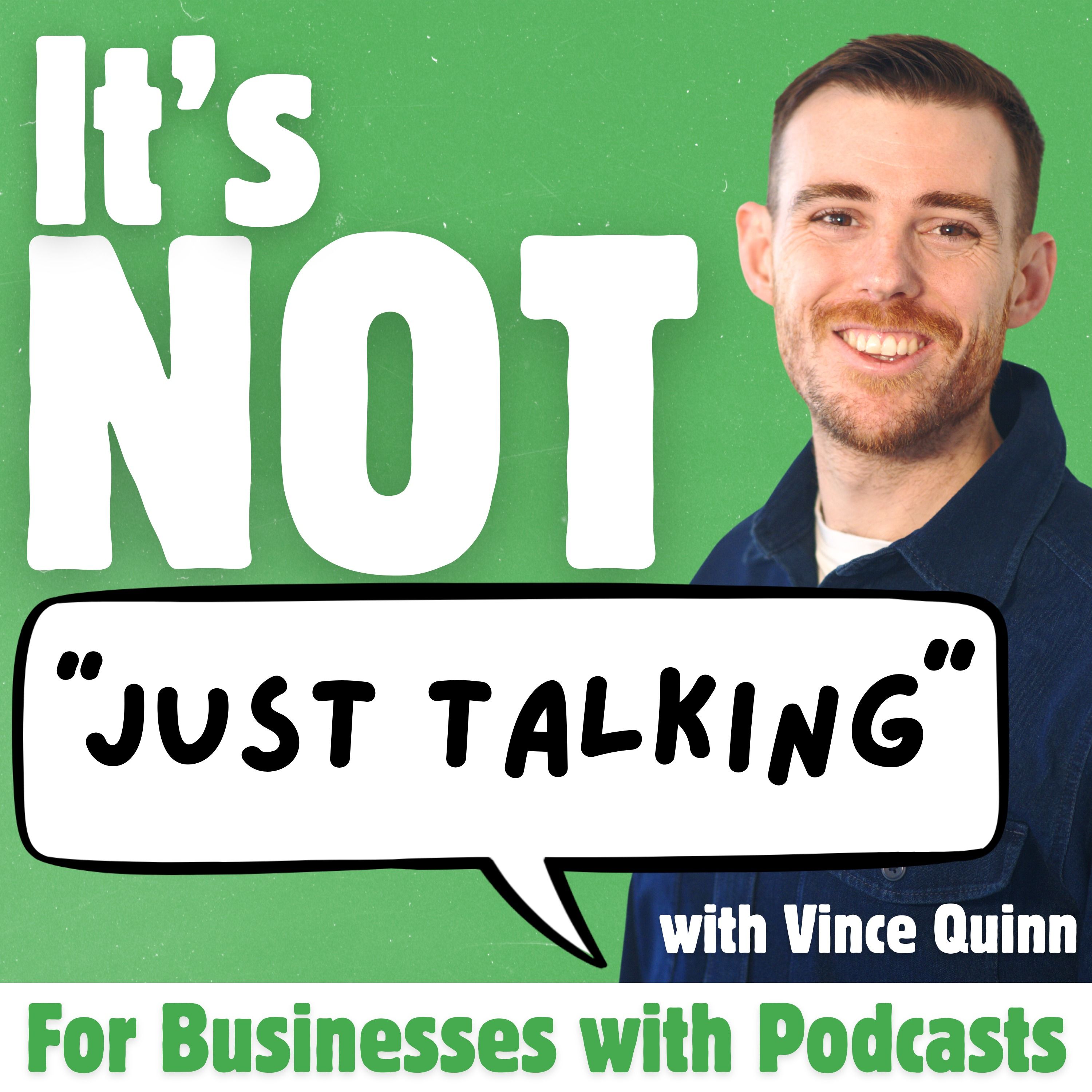
It's Not Just Talking with Vince Quinn
SBX Productions, Vince Quinn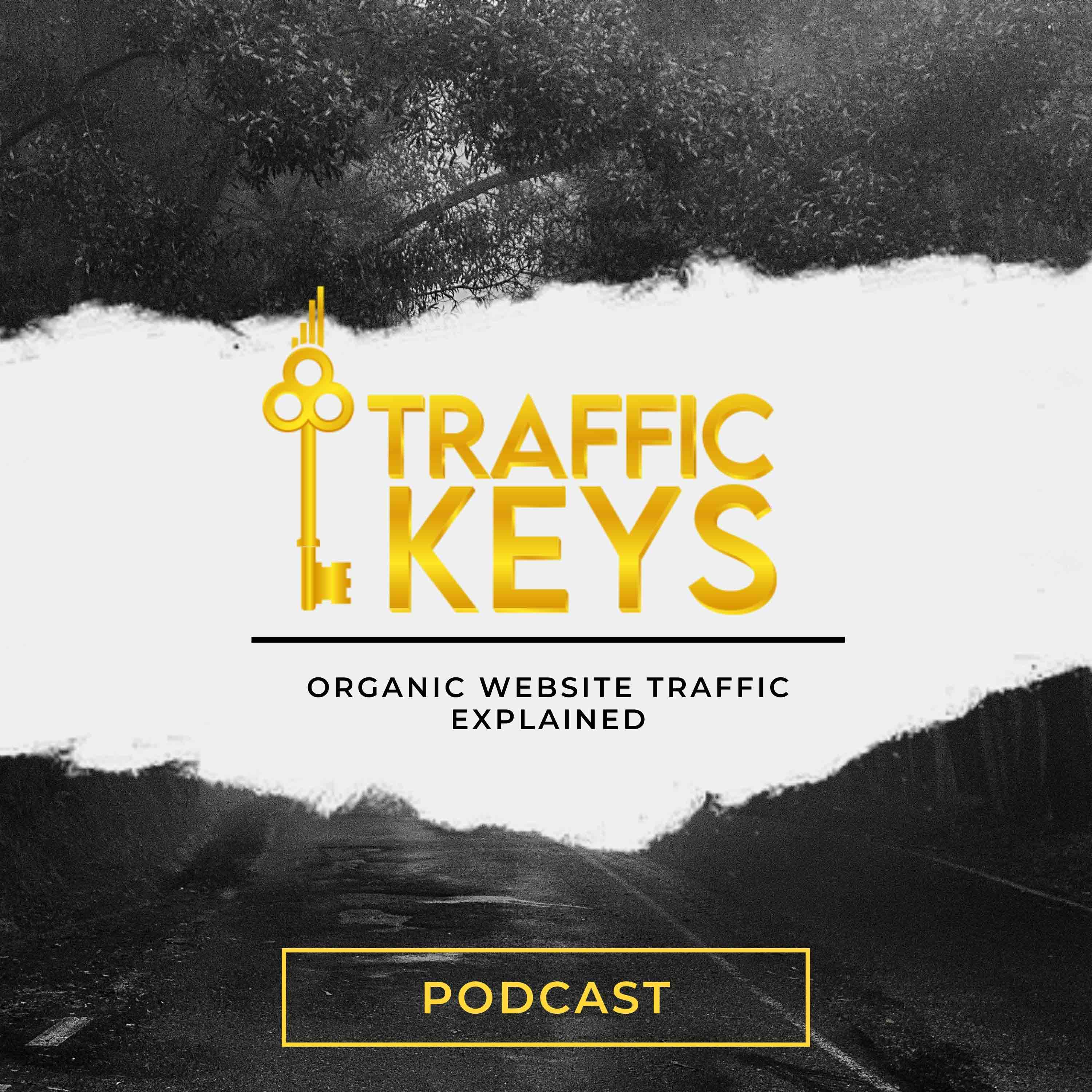
Traffic Keys Podcast
Atiba de Souza
I Have A Podcast by Vinnie Potestivo
Vinnie Potestivo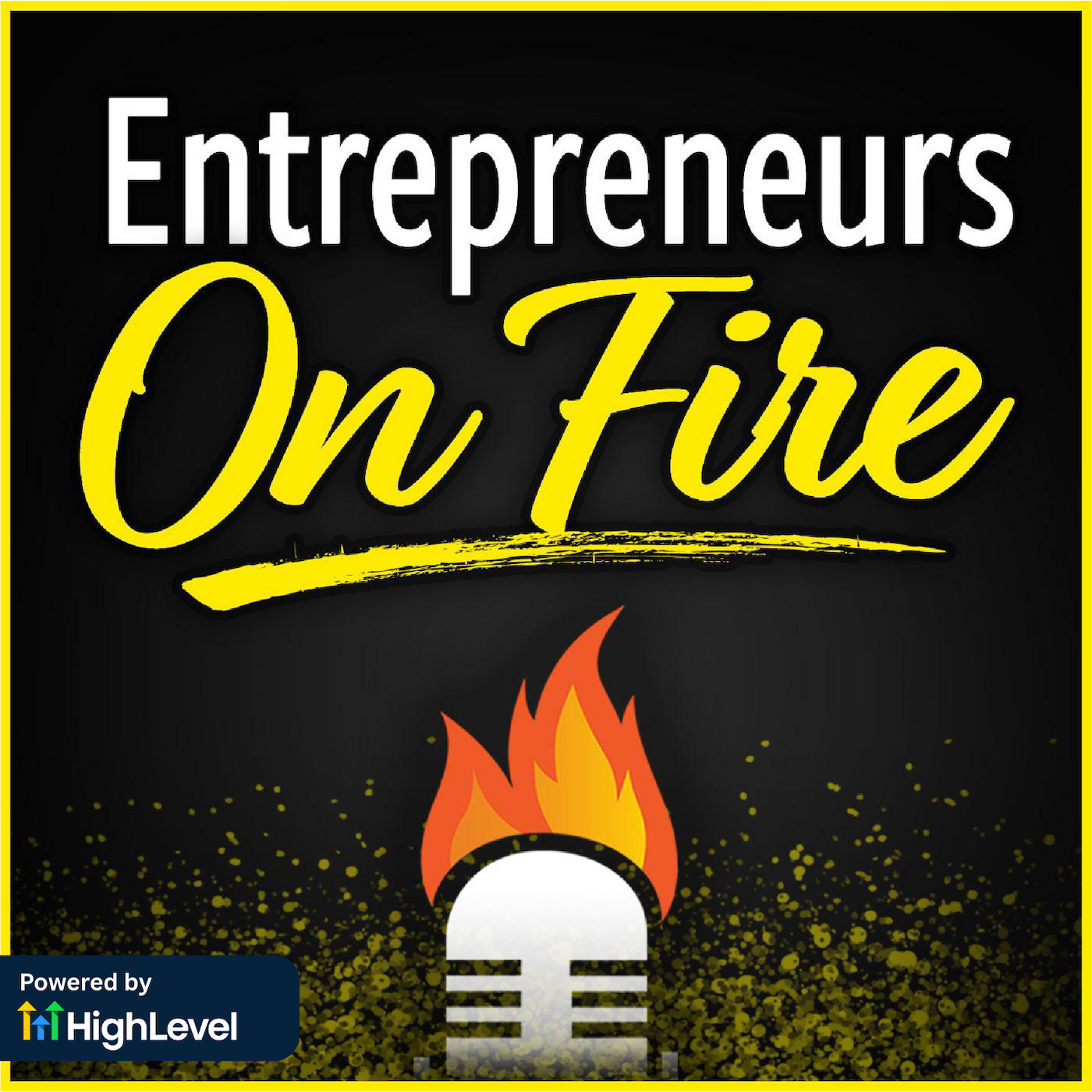
Entrepreneurs on Fire
John Lee Dumas of EOFire
Imperfect Marketing
Kendra Corman
Raise the Script with Nutrigenomics
Dr. Tamar Lawful, PharmD, APh, CNGS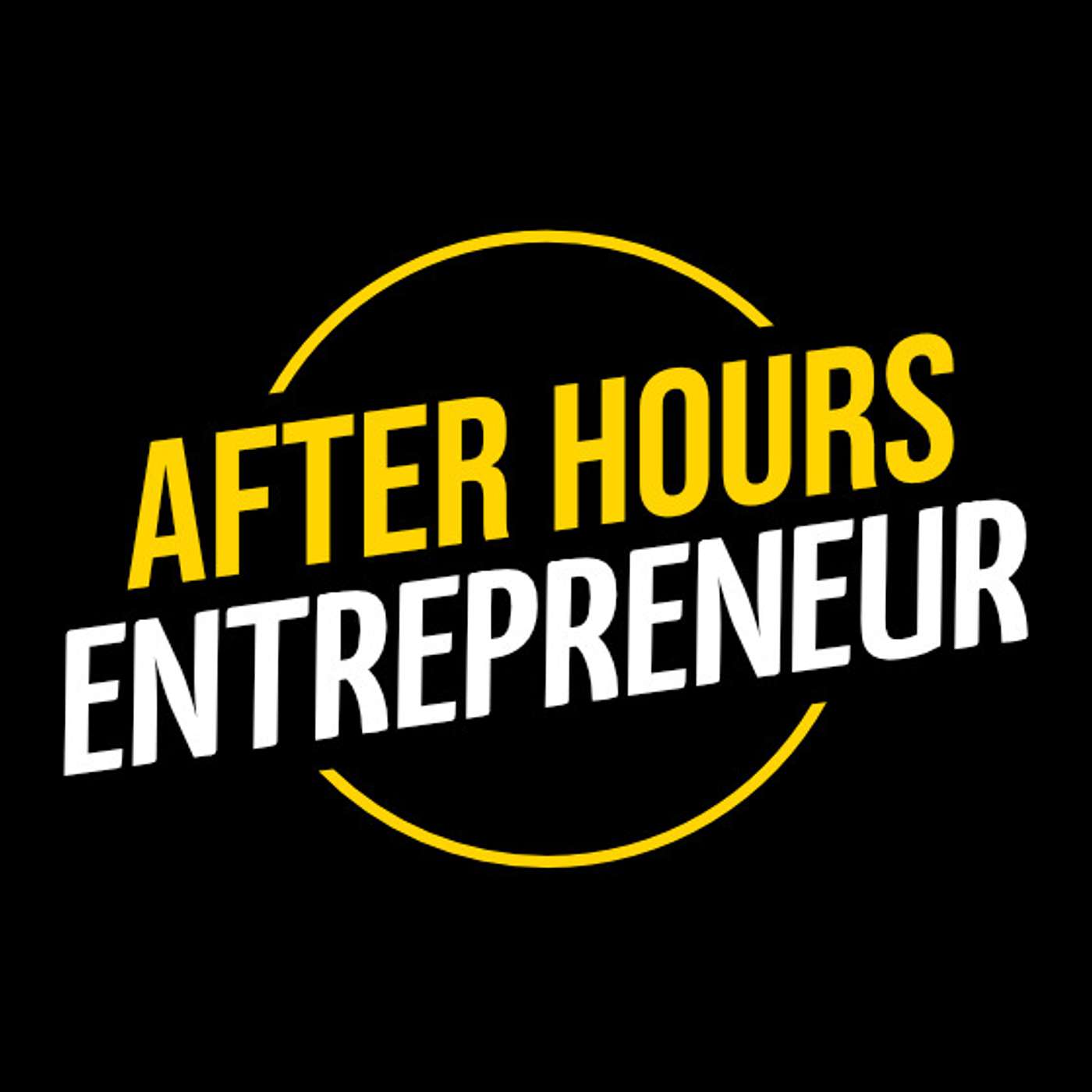
After Hours Entrepreneur with Mark Savant
Mark Savant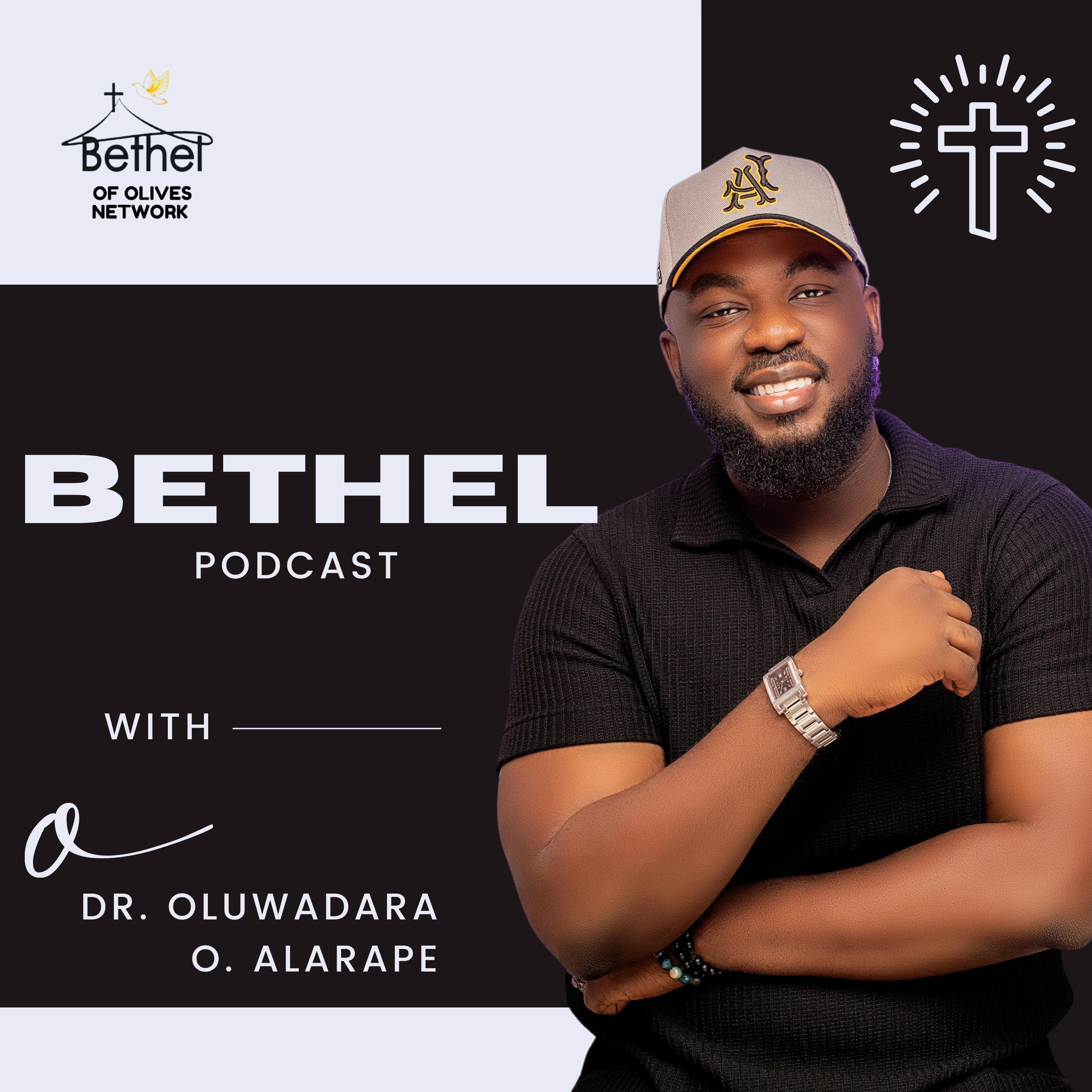
BETHEL
Dr. Oluwadara Alarape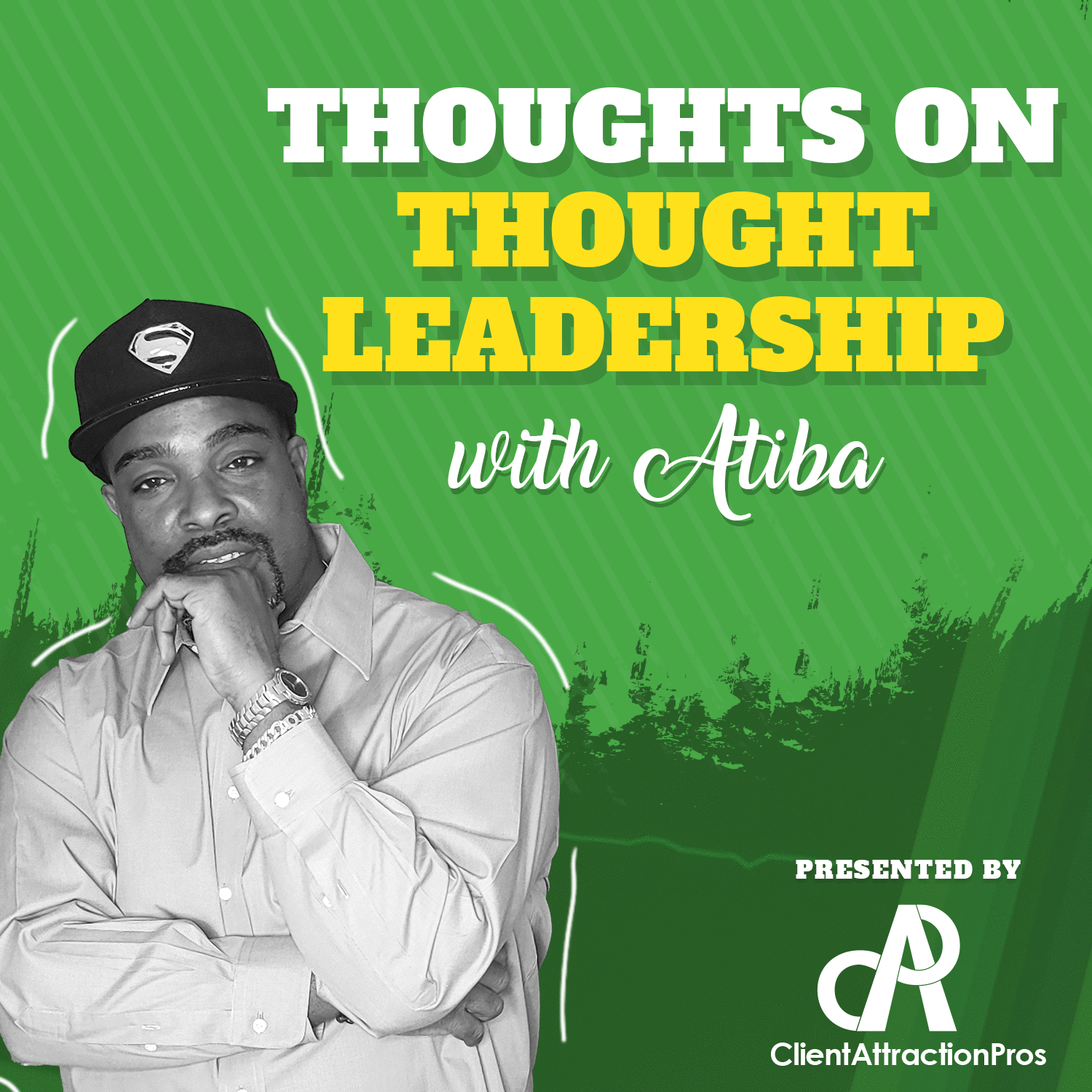
Thoughts on Thought Leadership with Atiba
Atiba de Souza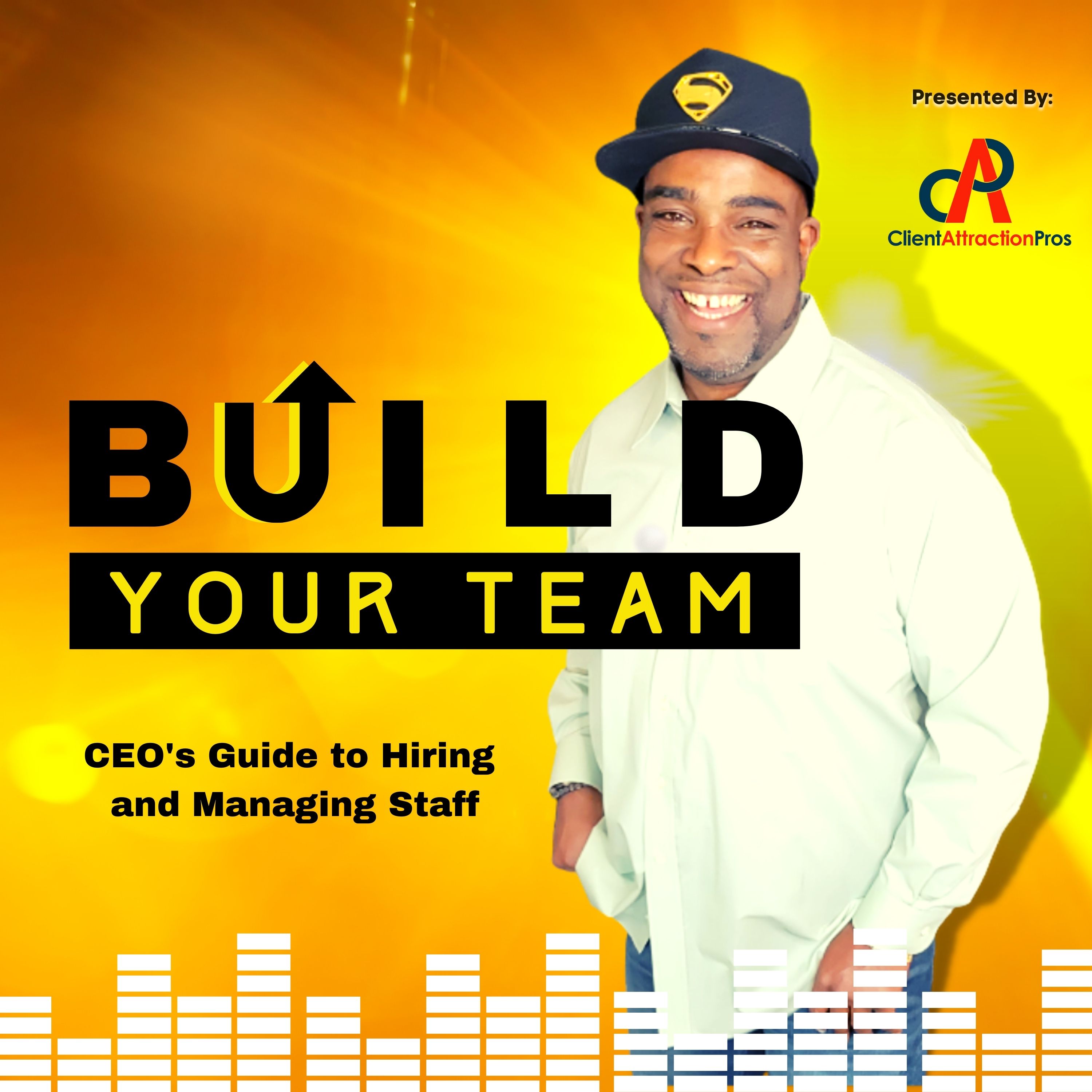
Build Your Team
Atiba de Souza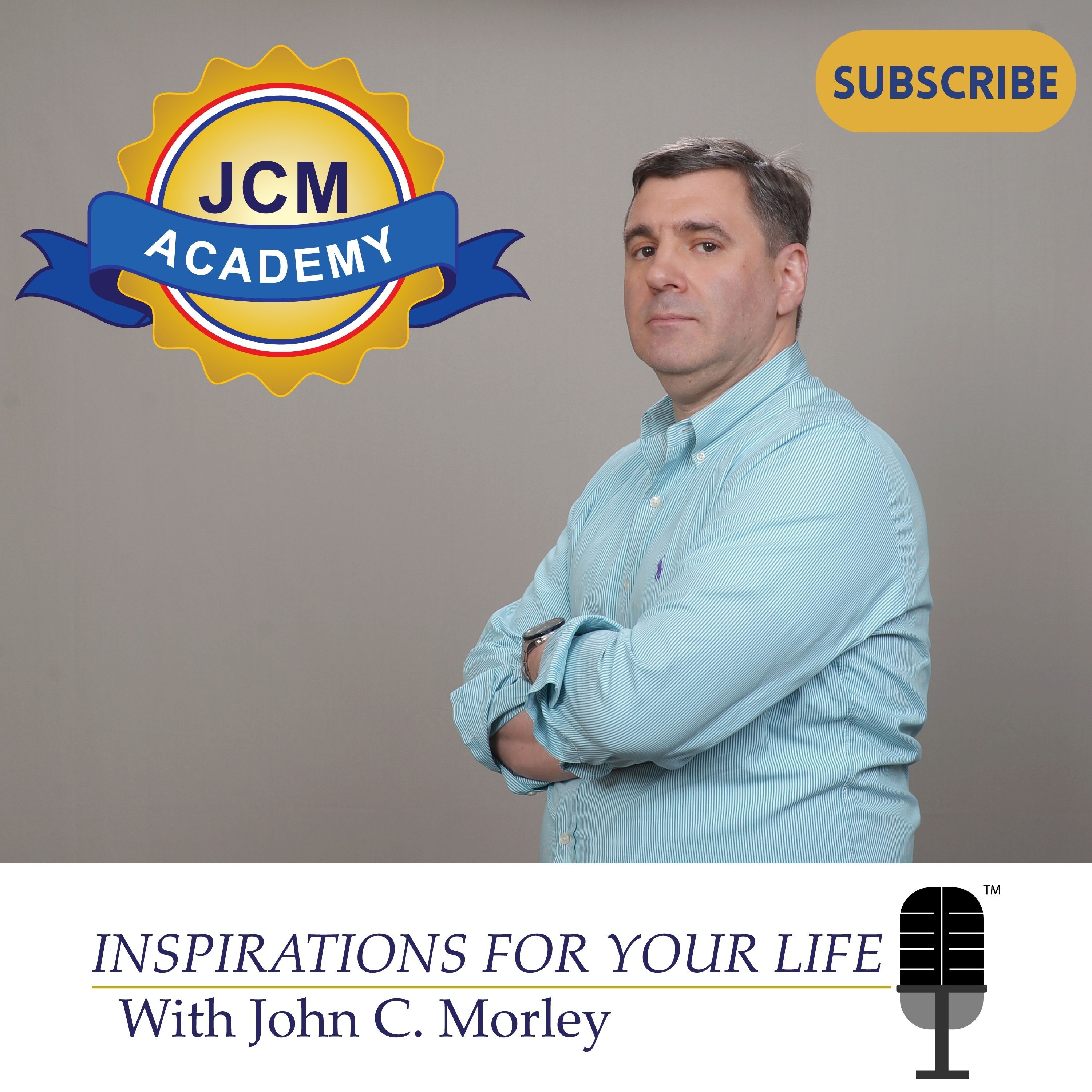
Inspirations for Your Life
John C. Morley, Serial Entreprener
Marketing in the Age of AI
Emanuel Rose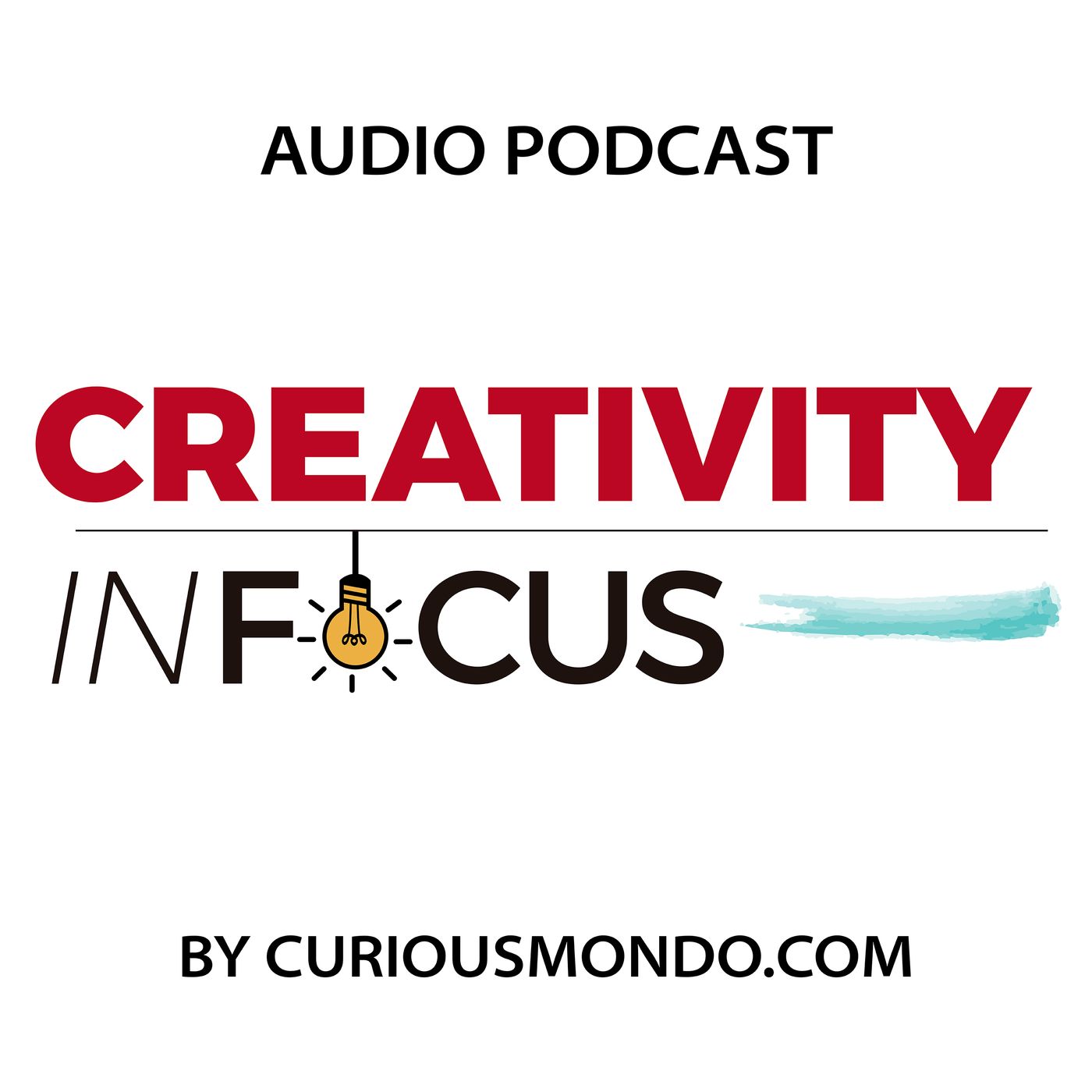
Creativity in Focus - Audio Only
Shahar Boyayan
Make Something Happen with Audrey Wiggins
Audrey Wiggins
The UnNoticed Entrepreneur
Jim James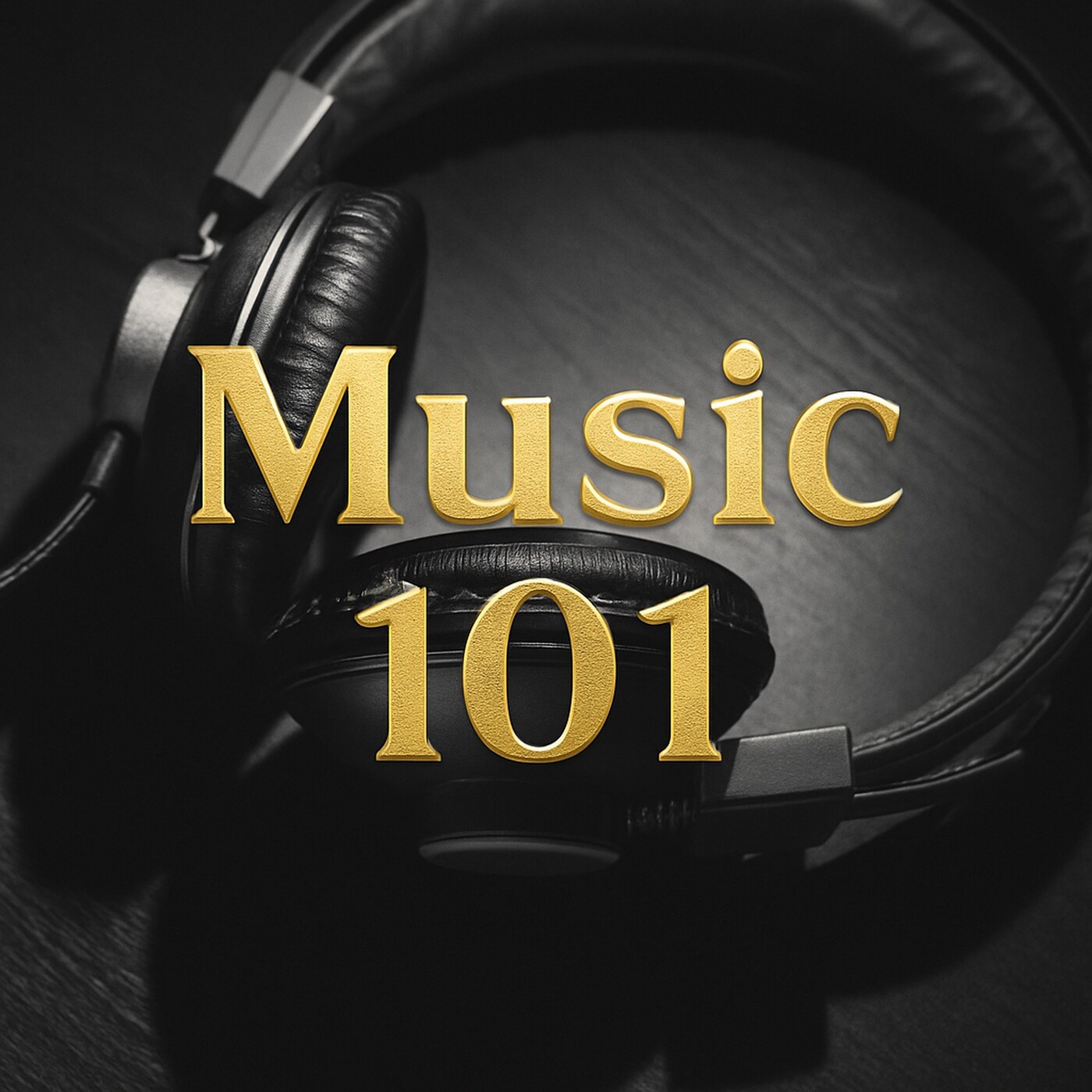
Music 101
Daniel Lucas / G.Mick Smith
Food 101
Daniel Lucas/Alessandro Panattoni
Abstract Essay
Daniel Lucas /Sal Cosenza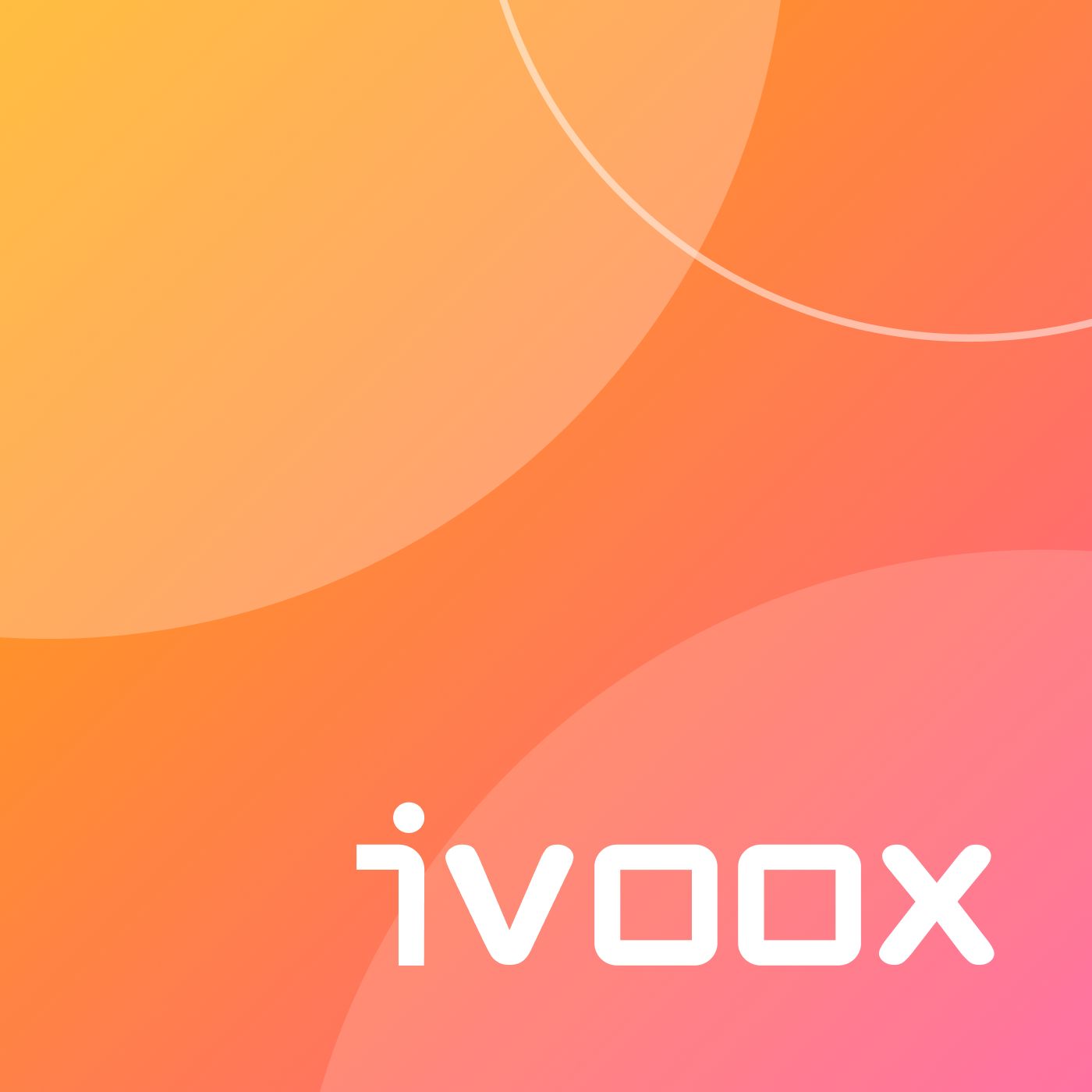
#iesgaherrera28d28sonidos
daniel lucas
El podcast de Lucas Daniel Porra
Lucas Daniel PorraDaily Dose of Dave Podcast
Dave Valentine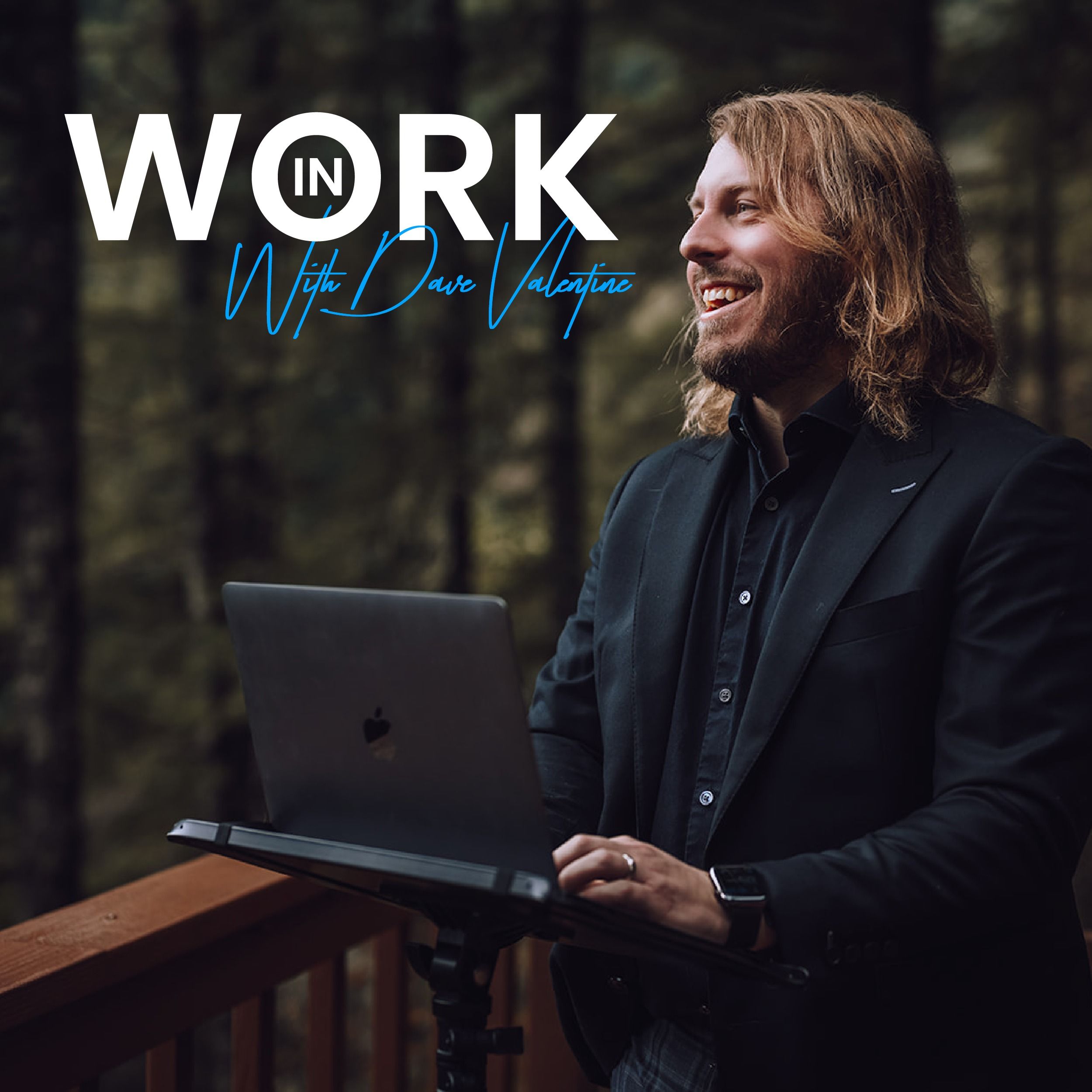
InWork Podcast with Dave Valentine
Dave Valentine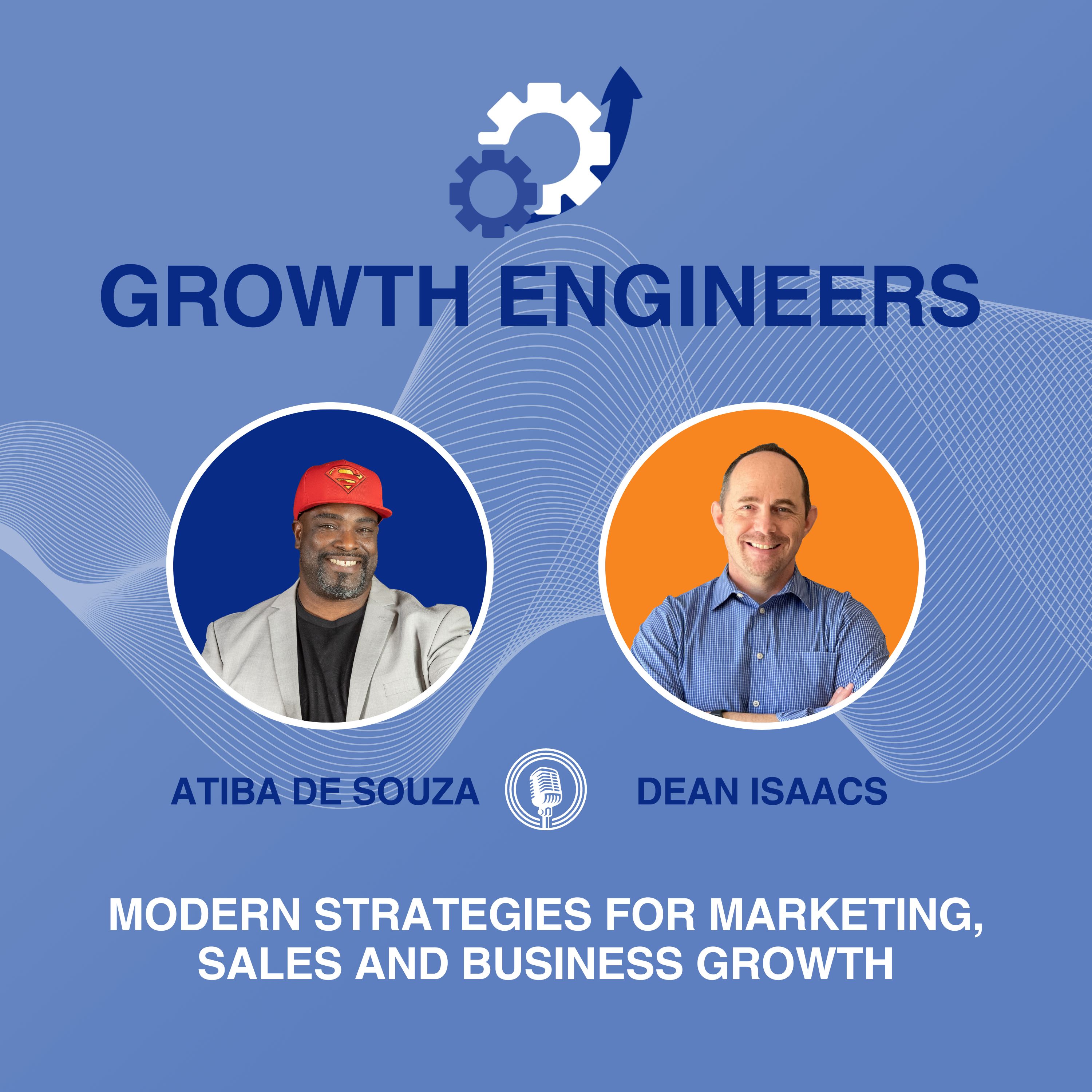
Growth Engineers
Atiba de Souza and Dean Issacs
Refuge Freedom Stories
Jonnie Taverner
St. Augustine of Hippo: Expositions of the Psalms
Mary McDonald
Podcasting for Financial Professionals
Virginia Elder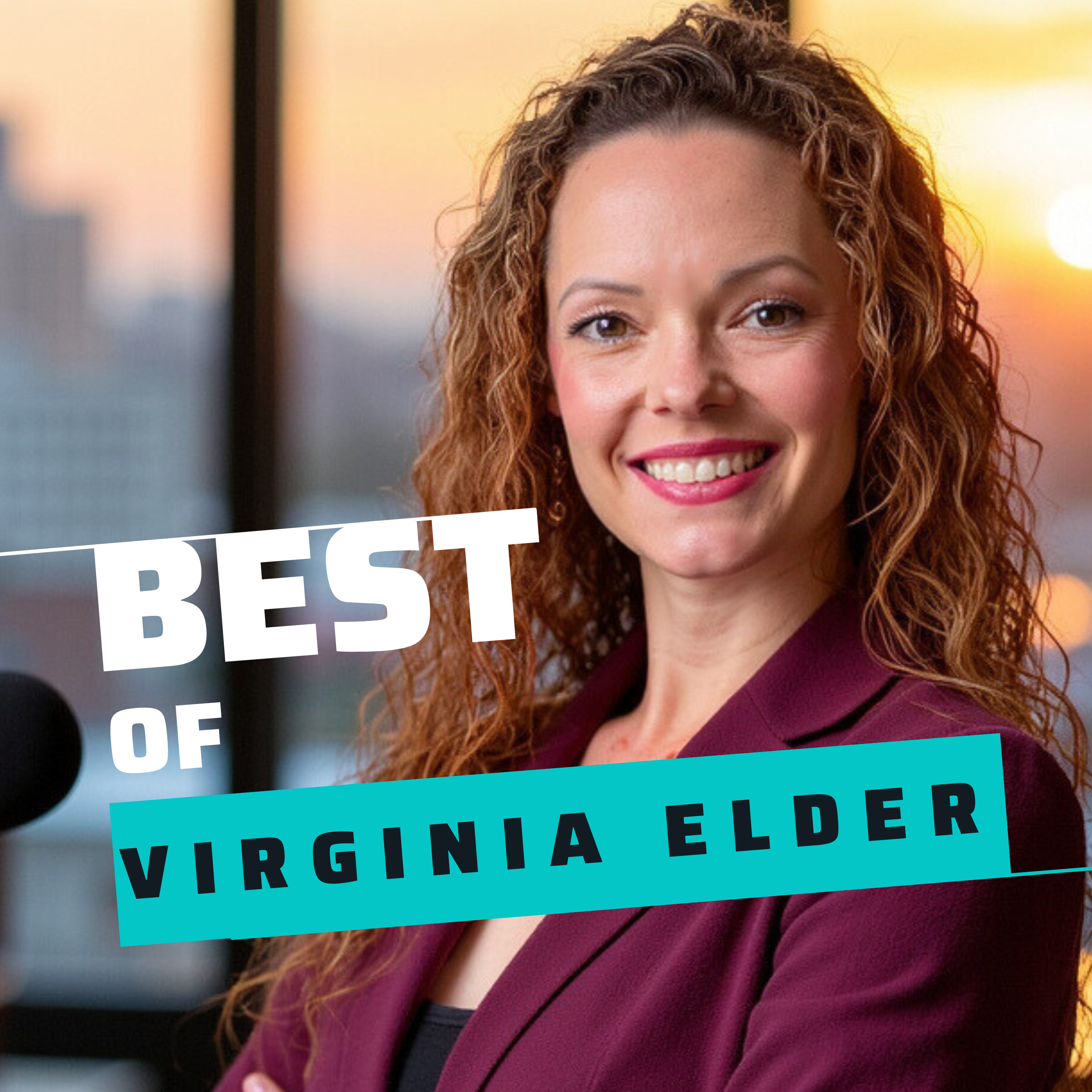
Best of Virginia Elder
Virginia Elder | Podcast Abundance
Gamify Business Tavern Tales
Paul Pape

